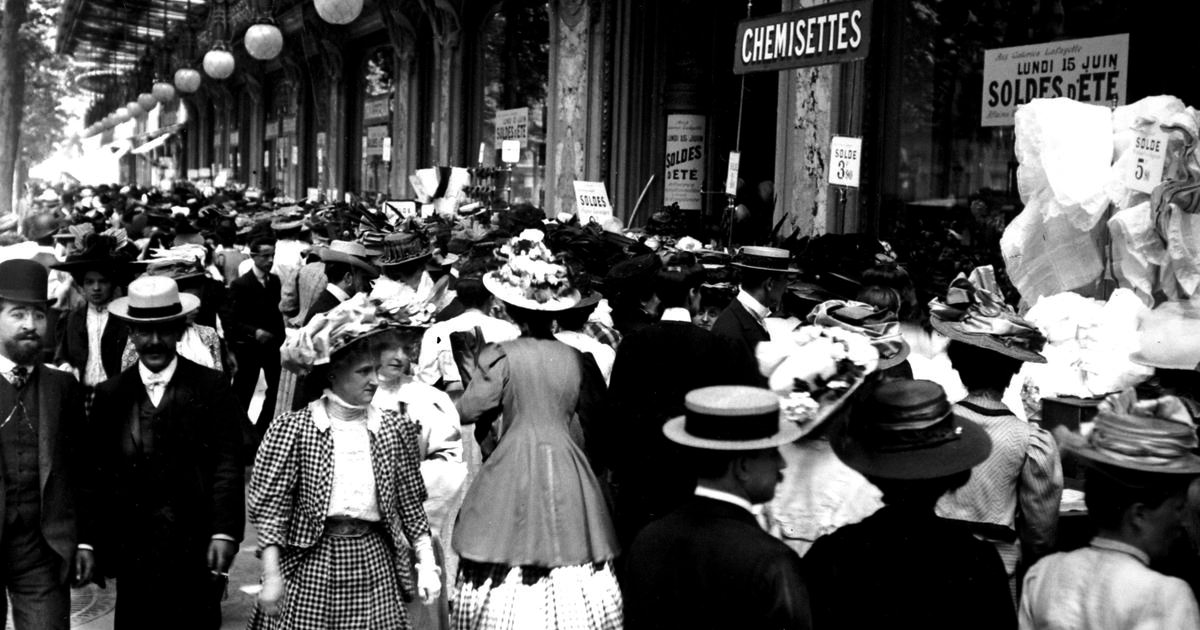Arthur Chevallier is the editor and author of several books on Napoleon, notably Napoléon sans Bonaparte (Éditions du Cerf, 2018) and Le Taste de Napoléon (Mercure de France, September 2019). He has just published Napoleon and Bonapartism (Que sais-je, January 2021).
Everything happens as if the history of France had not taken place, as if the Revolution, the Consulate and then the Empire had been nothing but mirages seen for a century in school books and chronological timelines.
The bicentenary is an opportunity to abuse Napoleon by adding any adjective to him as long as it is pejorative.
No one cares about the ideological consistency of these projections, or the logic on which they should be based.
Thus the left wing of the left, the most famous representatives of France rebellious to the natives, oppose, in the best of cases, Napoleon to the Republic and, in the worst, Napoleon to morality.
This quarrel is the result of a misunderstanding whose obviousness is such that it is not forbidden to see in it an intellectual dishonesty, let's not say political.
Jean-Luc Mélenchon did not lack panache, a few years ago, on the Place de la Bastille, by claiming to be part of the French Revolution.
Likewise, certain rebels do not lack courage when they try, not without talent, to rehabilitate the Jacobins by recalling that they were not only responsible for the Terror.
In short, the left embraces the Revolution as "
a block
", and after all, why not?
A phenomenon as unlikely as it is incomprehensible, it denies Napoleon.
The thing is not new.
Lionel Jospin the first, in a book (Le Mal napoléonien) whose qualities do not deserve to be discussed here, was indignant at Napoleon's legacy left to France, the confusion of civil power and the military.
The left does not want the “
dictator
”, the “
gravedigger of the Republic
”, the “
bloodthirsty conqueror
”, to which it opposes an idealized Revolution, the cradle of democracy, egalitarianism and virtue.
Indignation does not stand up to examination of the facts.
Napoleon is the statue of the French Revolution, for better or worse, like it or not.
Their indignation does not stand up to examination of the facts.
Napoleon is the statue of the French Revolution, for better or worse, like it or not.
The militarism of civil power, from which the wars of the Empire would have arisen, began as early as 1792, when the European powers stimulated by England attacked France to force it to restore the king to his rights.
In the name of sovereignty, the revolutionary assembly confuses its political destiny and its military destiny.
The most famous Jacobin deputies rallied to this idea, including those who were initially pacifists, Robespierre for example, who did not hesitate to contradict Carnot in supporting several military expeditions.
A citizen does not understand differently from a soldier: he is a Frenchman who defends the Republic with arms.
Is it necessary to recall that the invention of conscription (300,000 men mobilized) is an invention of the Revolution, which will allow Napoleon to continue his warlike work?
The most famous Republicans, on the left, will subscribe to this militarist tradition.
In 1871, it was not a monarchist, but Léon Gambetta who declared: "
That for everyone it should be understood that when in France a citizen is born, he is born a soldier
."
To read also:
Arthur Chevallier: "The Republic owes its survival to Napoleon in 1799"
Napoleon deserves to be excluded from the historiography of the left because he would have been retrograde towards women.
Under the Revolution as under the Empire, the place of women was thought of as a family adjustment variable.
In September 1792 the republican marriage was instituted, which became a contract that both parties could denounce and break.
The law proclaimed the equality of the two spouses and in the common life and in the separation and, above all, it authorized divorce by mutual consent.
By instituting divorce, the authorities hoped to encourage marriage and thus promote the birth rate.
The Revolution thus recognized civil rights for women.
On the other hand, they were excluded from the vote, did not have political rights.
Censorship, at the origin of which it passes to be, is also an idea of the Revolution.
This liberalization movement was interrupted in 1793 when women's clubs were banned.
On October 25, 1795, the Convention passed a series of decrees formalizing, among other measures, the exclusion of women from public life, cultural, scientific or literary institutions.
Napoleon will be satisfied, in the Civil Code, to complete a state of affairs which preceded him.
In this regard, we will reread the precious work of Christine Le Bozec.
As for censorship, at the origin of which it passes to be, it too is an idea of the Revolution.
After the day of August 10, 1792, which led to the capture of the Tuileries and the fall of Louis XVI, the Revolution became radicalized.
In December, royalist newspapers are banned.
In March 1793, a decree stipulated that "
whoever is convinced of having composed or printed works or writings which provoke the dissolution of the national representation, the reestablishment of royalty or any other power that is detrimental to the sovereignty of the people, will be translated. to the revolutionary tribunal
”.
The penalty incurred?
The death.
To read also:
Thierry Lentz: "We will commemorate Napoleon, it is about what we are!"
From June 1794, are considered as enemies of the people those who "
will have sought to mislead opinion and prevent the education of the people, to depraise mores and corrupt public conscience, to alter energy and purity. revolutionary and republican principles, or to stop their progress, either by counter-revolutionary or insidious writings, or even by any other machination
”.
Censorship is justified by the necessary protection of the morality of the people, who should therefore be educated, at the very least preserved from alleged intellectual corruption.
The censorship policy of Napoleon Bonaparte will be marked by similar considerations.
The Directory broke, initially, with the legislation of the convention by prohibiting, in its constitution of 1795, the preliminary censorship.
Less than a year later, he reinstated the death penalty for those who, in their writings, would promote “
the dissolution of the national representation
”, of the “
Directory
”, of the “
reestablishment of royalty
”, of the “
Constitution of 1793
”, of the“
Constitution of 1791
”.
A year later, the pressure exerted by the opposition was such that several dozen royalist newspapers were banned and their directors deported.
These evidences do not or little agree with the idea that the left has of itself, at least of its founding act.
It is also deplorable to have to recall what the Revolution produced most unpleasant to defend Napoleon, which will also magnify what it has produced best.
One of the reasons for this willful ignorance is also the idealization of French society at the end of the 18th century.
In many places the Revolution was conservative, if not puritanical.
It is also logical if we think about its causes.
The upper aristocracy was considered a social class of debauchery.
This is evidenced by the thousands of caricatures and pamphlets in which the queen and her friends were accused of spending their days hanging around in the Petit Trianon, spending the kingdom's money.
It is naturally that the revolutionaries made the promotion of morality, that one thinks of this famous "
virtue
" of which Robespierre had made himself the champion.
Napoleon joined this generation by giving the majority of French people a civil code that was in effect conservative and, sometimes even, retrograde.
This does not mean that the France of that time deserves to be denied or despised, but that it was so, that is all.
The continuity between the French Revolution and the reign of Napoleon is so obvious that almost all left-wing historians have never overwhelmed the emperor.
The Revolution had, in the name of the administrative unity of the territory, abolished slavery in 1794. Napoleon reestablished it on the occasion of the signing of the Treaty of Amiens in 1802;
and this for economic reasons.
While he was personally unfavorable to such a measure, he gave in to pressure from lobbies that could be described as industrial, in particular sugar.
He bears the responsibility for this decision which is, without any possible debate, a moral fault against humanity.
However, is it necessary to be left, or indigenous, to disapprove of the thing?
Any heir to the most elementary humanism condemns it, and there is no need for moral infantilization to reach such a conclusion.
With the exception of the reestablishment of slavery, the continuity between the French Revolution and the reign of Napoleon is so evident that almost all of left-wing historians, including "
Marxists
" or "
Neomarxists
", have never overwhelmed the Emperor, some even praised him.
To be convinced of this, it suffices to consult the works of Georges Lefebvre, Albert Mathiez and, more recently, Albert Soboul, who did not hesitate, during the bicentenary of the birth of Napoleon in 1969 to encourage, in L'Humanité, the communists commemorate the birth of the emperor in the name of a patriotism which the party could not shy away from.
The bicentenary of Napoleon's death is unfortunately the occasion for all denials, which are expressed excessively, that is to say, to use Talleyrand's word, insignificant.
Napoleon is not virtuous by nature, and France, one of the most historicized countries in the world, is intellectually capable of confronting itself at any point in its history.
This healthy and fruitful enterprise is conditioned on the honesty of its participants, on the primacy of knowledge over militancy, on the superiority of logic over morality.
What could be more gratifying for a nation than a reunion with its past?









